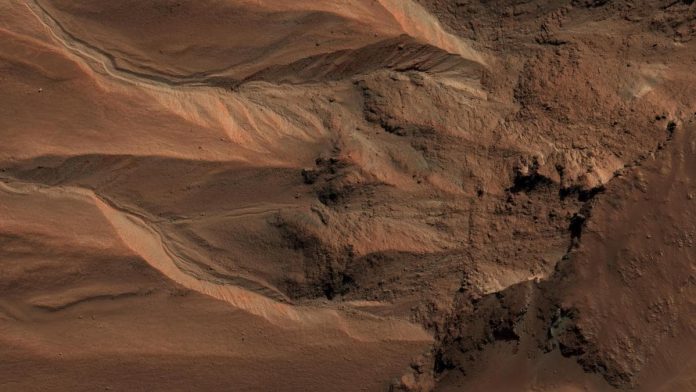New research suggests that water can escape from the Martian environment way faster than previously thought, potentially answering the question of why Mars – once a lush planet of lakes and rain clouds – is now a dry and dusty land of sand dunes.
The gradual disappearance of water (H2O) occurs in the upper atmosphere of Mars: sunlight and chemistry disassociate water molecules into hydrogen and oxygen atoms that the weak gravity of Mars cannot prevent from escaping into space. An international research team,1 led partly by CNRS researcher Franck Montmessin, has just revealed that water vapour is accumulating in large quantities and unexpected proportions at an altitude of over 80 km in the Martian atmosphere.
Measurements showed that large atmospheric pockets are even in a state of supersaturation, with the atmosphere containing 10 to 100 times more water vapour than its temperature should theoretically allow. With the observed supersaturation rates, the capacity of water to escape would greatly increase during certain seasons.
These results, which were published in Science on 9 January 2020, were obtained thanks to the Trace Gas Orbiter probe from the ExoMars mission, financed by the European Space Agency and the Russian space agency Roscosmos.
* — In France this research involved scientists from the Laboratoire atmosphères, milieux, observations spatiales (CNRS/Université de Versailles Saint-Quentin-en-Yvelines/Sorbonne Université) and the Laboratoire de météorologie dynamique (CNRS/École polytechnique/ENS Paris/Sorbonne Université).















